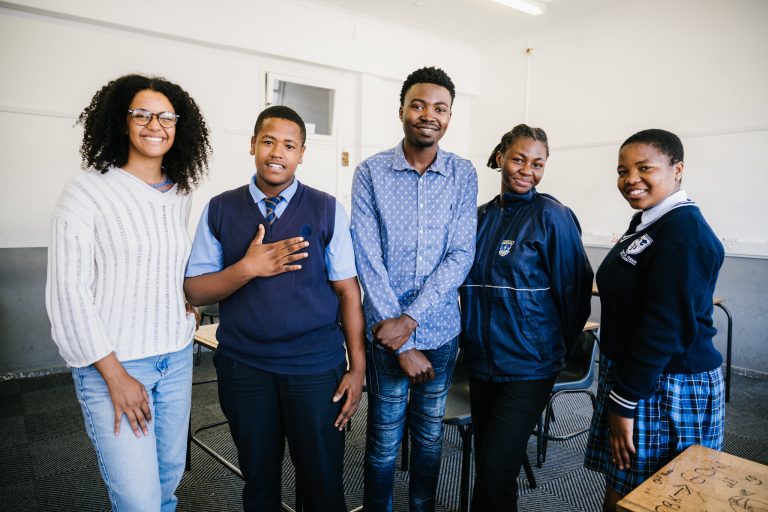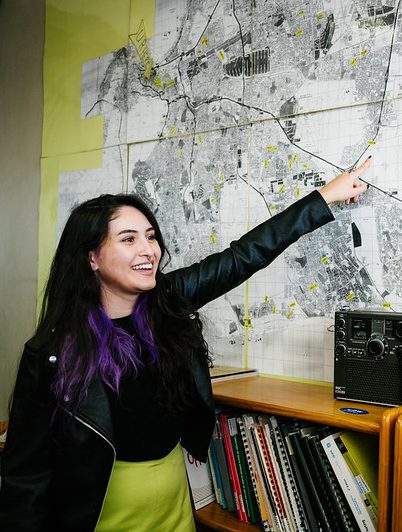RESOURCES
2024-03-13
What is Cultural Education?
Elevate minds with enriching cultural education. Explore diverse traditions, history, and perspectives with Tilting Futures.
Published by Tilting Futures

As society becomes more diverse, cultural education is more important than ever. It gives young adults the knowledge and skills they need to navigate — and thrive — in a multicultural world. It’s all about understanding and appreciating different cultures.
Explore what cultural education really is and how it is implemented in different settings. By embracing cultural education, we can build a more inclusive and harmonious society.
What Is Cultural Education?
Essentially, cultural education is both teaching and learning about diverse cultures, traditions, and even perspectives. There are many different experiences that play a part in promoting your understanding of the cultural diversity in our world. In fact, the scope of this education includes everything from learning about historical traditions to exploring contemporary cultural expressions and values.
As you increase your knowledge of different cultures, you become more empathetic. This broadens your perspectives. It also enables you to appreciate the richness of cultural diversity and develop respect for different ways of life. This is just one way to promote global citizenship and prepare individuals to engage with people from all manners of backgrounds.
Reasons and Principles
Emphasizing cultural education can break down prejudices and promote inclusivity. It enriches students’ perspectives, helping them appreciate global traditions and languages. By learning about different cultures, individuals develop empathy and critical thinking that they can’t get from any other experiences. This education also enhances communication skills to prepare students for a multicultural workforce. Ultimately, it strengthens community cohesion, contributing to a more harmonious and interconnected world.
These cultural education initiatives are guided by principles of inclusivity, respect, and authenticity. They aim to represent diverse perspectives accurately, which helps foster an environment where all cultural identities are valued. These initiatives often emphasize experiential learning, encouraging learners to directly engage with different traditions. They help students challenge stereotypes and understand cultural dynamics. Collaboration with cultural communities can ensure authenticity and relevance, while continuous evaluation and adaptation keep the initiatives responsive to evolving societal needs.
Places of Cultural Education
Tilting Futures
Tilting Futures prioritizes cultural education through innovative programs and initiatives. They offer workshops and immersive experiences designed to deepen understanding and appreciation of diverse cultures. By providing opportunities for direct engagement with cultural practices and experts, Tilting Futures helps individuals develop nuanced perspectives on global cultural dynamics.
Schools and Universities
Academic institutions can also play a role in promoting cultural education. Many schools integrate cultural education into their curricula through extracurricular activities and exchange programs. These institutions offer structured learning environments where students can discuss cultural issues and participate in multicultural events. By embedding cultural education into the academic experience, they prepare students to be culturally aware and responsible global citizens.
Informal Settings
Museums, galleries, and cultural centers offer rich resources for cultural education. These institutions provide valuable insights into the history, art, and traditions of various cultures, improving appreciation of cultural diversity. Many community centers and local organizations host workshops and festivals that celebrate different cultures. These informal settings offer impactful learning experiences that bring communities together.

Considering a semester abroad?
See how Take Action Lab could align with your goals.
Arguments in Favor of Cultural Education
- Fostering cultural awareness and appreciation: Cultural education promotes understanding and appreciation of diverse traditions, beliefs, and customs.
- Enhancing cross-cultural communication skills: It improves the ability to communicate effectively with people from different cultural backgrounds.
- Building tolerance and reducing stereotypes: Cultural education helps break down prejudices and fosters an environment of mutual respect and tolerance.
- Contributing to a well-rounded and globally minded society: It prepares individuals to navigate and contribute positively to an increasingly interconnected world.
Principles of Cultural Work with Youth
- Age-appropriate cultural education: Cultural programs are designed to suit the developmental stages and understanding levels of different age groups.
- Incorporating interactive and experiential learning: Hands-on activities and real-world experiences engage youth more deeply in cultural education.
- Tailoring cultural programs to diverse learning styles: Programs are adapted to meet the varied ways in which young people learn best.
- Collaborative and inclusive approaches: Encouraging participation and input from all youth ensures that programs are relevant and respectful of diverse perspectives.
Conclusion
Cultural education fosters respect and global awareness, which is why continued support and development of these initiatives is so important. Tilting Futures advances cultural education through inclusive, immersive programs that encourage direct engagement with diverse cultural practices and experts. Everyone benefits from a deeper appreciation and understanding of global cultures.
Learn more about cultural education with Tilting Futures.


